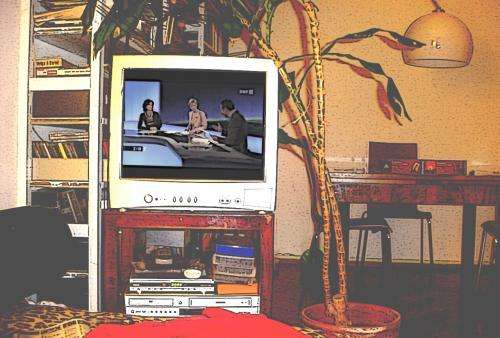Discursive Politics: Language with a Spin

A project sponsored by the Austrian Science Fund FWF has made a detailed investigation on what viewers understand and how they evaluate the statements of politicians during televised debates. To this effect, software-assisted conversation analysis established how the individual social knowledge of viewers nurtures the interpretations - and reinterpretations - of political statements. For the first time, the roles played by differing interpretive frames in our comprehension of political reality were able to be assessed realistically and in detail.
To date, there has hardly been any satisfactory scientific analysis of how politicians are able to establish their positions and perspectives with viewers. The demands of a methodology for comprehending the perceptual processes of potential voters appeared to be too complex. However, a recently completed project supported by the FWF formulated exactly how to do this. The three-year research conducted in the "Frame Project" traces and portrays how comprehension and perception works in the context of televised political debates through use of what are known as "interpretive frames".
Discursive Politics
The perceptual and comprehension processes of TV viewers can be precisely reconstructed and well understood with the help of interpretive frames. "The way we comprehend politics is acquired through social learning. The knowledge we acquire provides a ready repertoire of familiar patterns that we use to interpret new information. We construct our interpretive frames from these patterns. If the interpretational patterns of political messages do not match our interpretive frames, we perceive these as expressions of the opposing political camp and switch off our receptiveness," explains Project leader Dr. Emo Gotsbachner from the Department of Political Science at the University of Vienna.
The Frame Project vividly shows how politicians in televised debates attempt to persuade as many viewers as possible with their messages. They ingeniously try to break through the obstructions to receptiveness of viewers less devoted to their respective party. Through a manner of speaking adapted to their audiences – especially through the use of heteroglossic interpretive frames – they try to score points among supporters of other parties. Among other examples this was demonstrated in the analysis of a television discussion held between Heinz Christian Strache of the Austrian Freedom Party (FPÖ) and Eva Glawischnig of the Green Party (Grüne). According to Gotsbachner: "In many rhetorical strategies, one can observe attempts to address voters from other parts of the political spectrum. In order to impart their messages beyond a politically sympathetic viewership, both politicians employed heteroglossic interpretive frames." For example, left-liberal politician Glawischnig employed speech patterns typical of conservatives in order to make her own interpretive frame attractive to conservatively-minded viewers. The goal was to have viewers adopt this interpretive frame and to have them interpret new information from within it.
Reinterpretation of Interpretations
Detailed analysis of the discourse produced astounding results in this sample case: the conservatively-minded viewers actually did adopt the interpretive frame of the left-liberal politician. However, the evaluation by the conservatively-minded viewers on a key point turned out other than the politician intended. What developed from Glawischnig's criticism of anti-Semitic statements by an FPÖ politician was a knee-jerk response in one group of viewers along the lines of "the foreign press is just waiting to be able to discredit us again as a Nazi country." Dr. Gotsbachner on this point: "Using the advanced sociological discourse analysis we developed, it was possible for us to show how the conservatively-minded viewers utilised a gap in Glawischnig's interpretive frame by filling it in with their own socially-acquired body of knowledge."
During the Frame Project, all of the televised political discussions from the Austrian Broadcasting Corporation (ORF) evening news were presented to four to five groups of television viewers shortly after broadcast. In selecting these groups, special care was taken to encompass various viewer audiences with differing social and political backgrounds. Their perceptions, assessments and evaluations of the statements made during televised discussions were recorded in 23 one- to two-and-a-half hour open group discussions, processed with the help of qualitative Atlas-ti software into reference grids, and analysed in exhaustively fine detail. In this way, a new methodology for researching political perception was able to be successfully developed and tested during the FWF project. The fundamental knowledge that has been obtained represents a valuable foundation for further investigation in many scientific disciplines - from sociology to cognitive sciences and applied linguistics.
Provided by Austrian Science Fund (FWF)















